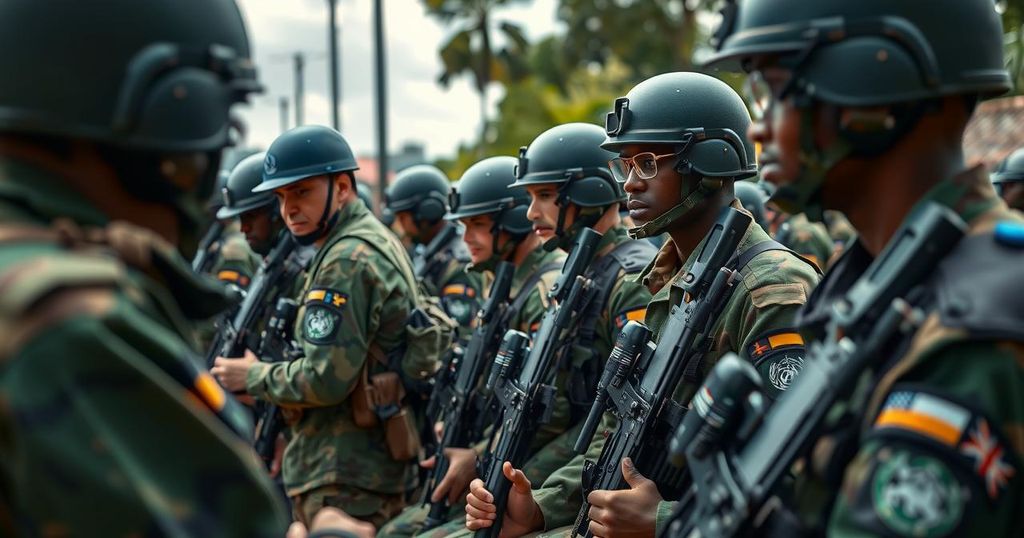A monitoring unit for the truce between the Congolese military and M23 rebels will launch on Tuesday. The M23 has gained ground in eastern DR Congo, raising concerns of increased violence and humanitarian crises. Angola is leading the monitoring effort, which involves both Congolese and Rwandan forces, as the region struggles with persistent instability.
On Tuesday, a truce monitoring unit is set to commence operations to oversee the ceasefire between the Congolese military and the Rwanda-backed M23 rebel group. This development comes amidst escalating activity by the M23, which has made significant territorial gains in eastern Democratic Republic of Congo (DRC) since its resurgence in late 2021. This ongoing conflict has caused considerable displacement and has exacerbated humanitarian challenges in the region. The ceasefire agreement established in August 2022 initially brought some stability; however, recent advances by the M23 in the North Kivu province have raised alarms. Following their violent engagements near Lubero territory, the M23 has captured the town of Kamandi Gite, further straining the local population and resources. Amid these tensions, Angola has assumed the role of truce negotiator and will lead the new monitoring force, which will consist of both Congolese and Rwandan officers to help ensure compliance. Although some areas like Pinga have experienced brief lulls in violence, many displaced individuals have flocked to the town, placing immense pressure on local facilities. The region continues to struggle with resource shortages, particularly in healthcare. “The hospital has no medicine and the toilets are in a bad state. We fear the appearance of serious illnesses,” stated Theophile Mukandirwa, director of the Pinga hospital. The eastern DRC, rich in minerals, has been plagued by factions and violence for decades, leading to complex challenges for peace efforts in the troubled region.
Theongoing conflict in the eastern Democratic Republic of Congo has been fueled by the activities of various rebel groups, particularly the M23, which is predominantly composed of ethnic Tutsis. Since its resurgence in 2021, the M23 has sought to control critical regions, resulting in significant humanitarian crises, including widespread displacement. A ceasefire brokered by Angola in August aimed to stabilize the situation, yet renewed hostilities have prompted the establishment of a monitoring mechanism to ensure compliance with the truce. This region has a history of inter-ethnic violence and external influences, notably from Rwanda, complicating peace negotiations.
The initiation of the truce monitoring operations signifies a crucial step in addressing the ongoing conflict in eastern DRC, particularly given the recent military advancements by the M23. While the ceasefire has produced temporary stabilizations, the situation on the ground remains precarious as local populations face dire humanitarian conditions. Continued vigilance and proactive measures will be essential to mitigate the suffering of displaced individuals and to uphold the integrity of the ceasefire agreements established by regional powers.
Original Source: www.enca.com






